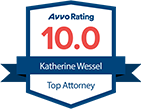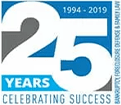Chapter 11 is typically known as Business Reorganization.
In the past, big companies like Chrysler, General Motors, Marvel Entertainment, and even Apple have used Chapter 11 to save their business!
Yet small business bankruptcy debtors have continued to struggle to reorganize effectively under Chapter 11 of the Bankruptcy Code.
For smaller companies, Chapter 11 is just too cumbersome, and only the most expensive bankruptcy law firms file Chapter 11s.
All too often, small business owners give up rather than fight the uphill battle of Chapter 11.
Well, the Federal government enacted two significant pieces of federal legislation in 2020. This vastly improves small businesses bankruptcy.
The Small Business Reorganization Act of 2019 (SBRA), which became effective in February of 2020, is technically known as Subchapter V of Chapter 11 of the Bankruptcy Code and is specific to small businesses.
Congress designed the SBRA to streamline business reorganizations, reduce the cost, speed the process, and increase the chances of success.
Compared to Chapter 11, the SBRA is efficient and straightforward.
It eliminates some of the more costly elements of traditional Chapter 11, such as disclosure statements. In some ways it is modeled after expedited procedures used in Chapter 12 and 13 cases.
How do you know if your business qualifies for the Small Business Reorganization Act of 2019?
At the time of enactment, if your business has secured and unsecured debts, subject to specific qualifications, of less than $2,725,625, it can reorganize under SBRA.
However, The Coronavirus Aid, Relief, and Economic Security Act (CARES Act), created in response to the economic calamity caused by the COVID-19 pandemic, was enacted on March 27, 2020.
The CARES Act raises the small business debt limit to $7,500,000 until March 27, 2021.
Features of the SBRA’s “small” Chapter 11
Eligibility
The SBRA has a debt limit of $7,500,000 until March 27, 2021. After that, unless Congress extends this provision of the CARES Act, the debt limit will drop to $2,725,625.
A trustee is appointed
Unlike Chapter 11, the SBRA requires the United States Trustee to appoint a standing trustee in every case. Their duties are much like a Chapter 13 trustee. Debtors pay SBRA Plan payments to the trustee, who then disburses proceeds per the confirmed SBRA Plan.
No unsecured creditors committee
An unsecured creditors committee may not be appointed in a Subchapter V case unless ordered by the Court for cause, thereby getting rid of one of the complications (and expense) of a “full-blown” Chapter 11.
The Court holds a case management conference
Within 60 days of the petition (unless extended by the Court due to cases “for which the debtor should not justly be held accountable”), the Court will hold a status conference to ensure case progression.
Plan of Reorganization
Under Subchapter V, the deadline to file the Plan is a full 90 days from the filing date. The Court can further extend this deadline if there are certain things for which the debtor should not be held accountable. Furthermore:
- Like Chapter 13, only the debtor files a plan.
- Like Chapter 13, the plan length may be no less than three years and no more than five years. The debtor must dedicate all disposable monthly income (D.M.I.) to the Plan.
- Disclosure Statement. The debtor does not file a disclosure statement. In its place, the Plan must include the things traditionally addressed in the disclosure statement. This would include a brief history of the business operations, a liquidation analysis, and projections of the debtor’s ability to make the proposed plan payments.
- A Subchapter V plan may modify the rights of a secured lender with a lien on the principal residence if the “new value” received from the loan:
- was not used primarily to acquire the home and
- was used primarily in connection with the small business.
Debtors should be able to alter the terms of home equity loans and second mortgages obtained for business purposes (Think S.B.A. loan).
Confirmation of the Plan
The Plan should be confirmed (approved by the judge) if it is (a) feasible, (b) does not unfairly discriminate, and (c) is fair and equitable to the non-consenting, impaired classes of creditors.
Discharge
The Court will not grant a discharge until the debtor completes all payments due within the first three years of the Plan or a longer period not to exceed five years as the Court may fix. The discharge applies to all debts addressed by the Plan except:
- Secured debts where the last payment is due after the completion of the Plan, or
- Debts that are non-dischargeable.
Unanswered questions about the SBRA
The SBRA leaves some issues with no answers for small business bankruptcy. We will get those answers as the body of case law grows over the months and years.
- What will the SBRA trustee charge the debtor as an administrative expense? A Chapter 13 trustee is allowed to charge an administrative fee, maxed out at 10% of the plan payment. There is no similar clause in Chapter 11 or Subchapter V. So, the Subchapter V trustee’s fee may be set by the Court, using a “reasonableness” standard. Without a legislative rule, expect debtors and trustees to fight over fees until a “standard” is established.
- Similarly, what interest rate applies to secured loans under confirmed plans? Will it be the contract rate or some presumptive rate established by case law or local rule?
- As a hybrid, what current case law has precedent in SBRA cases? Will the Courts rely on Chapter 11 case law, or will they rely upon some Chapter 13 case law as well?
Small Business Bankruptcy Conclusion
- The SBRA will surely result in more small business reorganization filings by debtors who could not afford to file a traditional Chapter 11.
- The streamlined small business bankruptcy process will enable a small business to quickly and easily confirm a Plan of Reorganization, even over creditor dissent.
- Debtors straddled by secured business loans have a weapon to shrink or get rid of those balances by “cramming down” these loans to the fair value of the debtor’s home.
- The SBRA is better for creditors as well, since it should reduce creditor attorney fees and provide a greater chance of repayment versus liquidation in Chapter 7.
How much does it cost?
Unlike Chapter 7 and Chapter 13, small business bankruptcy cases are all very different.
Therefore, they are very hard to pin down on costs.
As a general rule, the cost of any legal services is a function of time involved, complexity of the matter and the experience of the lawyer. Small business bankruptcy is no different.
However, unlike almost every other area of legal practice, fees charged to the debtor must be deemed reasonable by a court of law before they are paid to the lawyer.
The bankruptcy judge looks at the attorney fees charged to the SBRA debtor before determining whether those fees are reasonable.
We bill SBRA clients at an hourly rate against a retainer that is held in our trust account until the bankruptcy judge allows us to move that money into our operating account.
SBRA retainers can start as low as $7,000, as determined on a case by case basis.
The lawyers of Parker & DuFresne, P.A. will meet with you at no charge to evaluate your case. Then we will provide you an estimated cost.
Put Parker & DuFresne’s experience to work for you.








